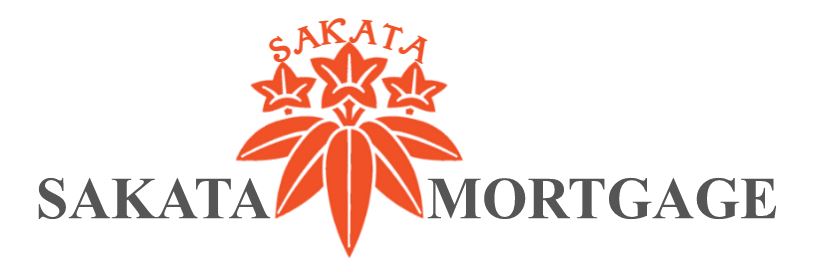Government mortgage loan programs are initiatives sponsored by federal or state entities, designed to assist individuals and families in purchasing homes. These programs often feature competitive interest rates, lower down payment requirements, and other benefits to promote affordable homeownership.
Understanding Government Loans
Government-backed loans are designed to provide accessible and affordable financing options for homebuyers. Here, we’ll explore three prominent government loan programs: FHA, VA, and USDA. Click on a section below to learn more about each loan program.
The Federal Housing Administration (FHA) loan program is a cornerstone of affordable homeownership. Established by the U.S. Department of Housing and Urban Development (HUD), FHA loans are tailored to assist low to moderate-income individuals and families in securing mortgages with favorable terms.
Key Features
Low Down Payment: FHA loans typically require a down payment as low as 3.5% for borrowers with a credit score of 580 or higher, making homeownership more accessible. However, for those with credit scores between 500 – 579, a 10% down payment is required (as of 2022; please consult your financial advisor and loan officer for rates).
Competitive Interest Rates: Borrowers benefit from competitive interest rates, ensuring affordable monthly payments.
Lenient Credit Requirements: FHA loans are more forgiving of lower credit scores, providing opportunities for individuals with less-than-perfect credit histories.
Flexible Qualification Criteria: The program allows for higher debt-to-income ratios, accommodating a broader range of financial situations.
Benefits
Affordable Entry Point: FHA loans offer an accessible path to homeownership, particularly for first-time buyers and those with limited resources.
Lower Upfront Costs: The low down payment requirement minimizes the initial financial commitment, easing the burden on homebuyers.
The Federal Housing Administration (FHA) offers loans tailored for first-time homebuyers and those with limited down payments. With lower credit score requirements and flexible qualification criteria, FHA loans have become a popular choice for many buyers. For personalized advice, consider consulting a financial advisor or lender. They’ll take into account your specific circumstances and consider the dynamic nature of financial markets. This ensures that your FHA mortgage fits well within your budget.
Considerations
Mortgage Insurance Premium (MIP): FHA loans require both an upfront and annual mortgage insurance premium (an additional fee you pay to protect the lender in case you default on your FHA loan). While this makes it possible to qualify for a loan with a lower down payment, it does add to the overall cost.
Limited Loan Limits: FHA loans have maximum loan limits, which may vary by location. In high-cost areas, the loan amount may not cover the full cost of expensive homes.
Property Standards: The property must meet certain FHA standards, which means homes in need of significant repairs may not qualify.
The U.S. Department of Veterans Affairs (VA) backs VA loans, providing a unique opportunity for eligible veterans, active-duty service members, and certain members of the National Guard and Reserves to secure favorable mortgage terms.
Key Features
No Down Payment Required: VA loans often do not necessitate a down payment, eliminating one of the most significant barriers to homeownership.
Competitive Interest Rates: Borrowers enjoy competitive interest rates that are often lower than those available through conventional loans.
No Private Mortgage Insurance (PMI): VA loans do not require PMI, further reducing monthly expenses for eligible borrowers.
Benefits
Exclusive Benefit for Service Members: VA loans serve as a tangible benefit for those who have served our nation, providing a pathway to homeownership with highly favorable terms.
Financial Flexibility: The absence of a down payment requirement and lower interest rates can free up financial resources for other purposes.
Considerations
Potential for Higher Interest Rates: VA loans may have slightly higher interest rates compared to conventional loans. However, it’s worth noting that interest rates on VA loans are negotiable.
VA Loan Funding Fee: Most borrowers are required to pay a VA loan funding fee, which currently ranges between one and three percent of the loan amount. This fee helps offset the cost of the VA loan program.
The U.S. Department of Agriculture (USDA) offers loans to support homeownership in rural and semi-rural areas. These loans are specifically designed to promote economic growth in these regions, making them an excellent choice for eligible rural homebuyers.
Key Features
Zero down payment, making homeownership more accessible.
Lower interest rates compared to conventional mortgages.
No need for private mortgage insurance (PMI), saving money on monthly payments.
More flexible credit requirements, allowing borrowers with less-than-perfect credit to qualify.
Specific options for low-income applicants, including direct loans and home improvement loans/grants.
Benefits
Accessible Rural Housing: USDA loans open doors to homeownership for families in rural communities, providing a stable foundation for growth and prosperity.
Financial Relief for Rural Residents: By eliminating the need for a down payment, USDA loans ease the financial burden on buyers in rural areas.
Considerations
Limited to eligible rural areas and specific towns, restricting location choices.
Income limits set by the USDA may exclude those with higher incomes from qualifying.
Longer processing times due to additional requirements and approvals.
Upfront and annual fees for borrowers using USDA loan guarantees, adding to the overall cost.
Property restrictions, such as meeting health and safety standards, which could limit options for homebuyers.
Finding Your Perfect Fit
Selecting the right government loan program depends on your unique circumstances. Consider factors like your military service history, preferred location, and financial situation. Consulting with a knowledgeable mortgage advisor can help you make an informed decision.
Each government loan program offers distinct advantages to prospective homebuyers. By understanding their key features, you can confidently navigate the path to homeownership. Whether you’re a first-time buyer or a seasoned homeowner, these programs exist to support your dreams of owning a home.

